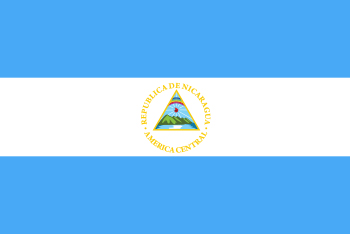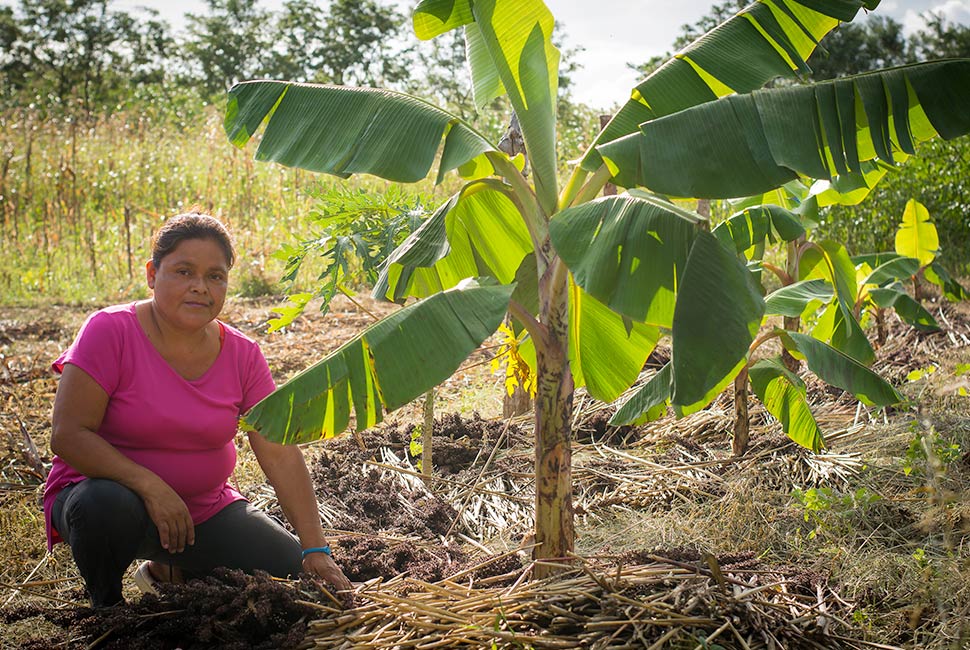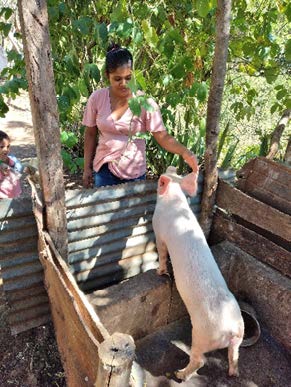 Nicaragua Carazo Diriamba
Nicaragua Carazo Diriamba
$84,909 needed of $173,659

Implementing Organization
Church World Service (CWS)
Program Summary
A dry climate, environmental deterioration, and chronic poverty have contributed to an inadequate quantity and quality of water and insufficient food in this region, resulting in malnutrition and other health problems. These challenges are complicated by illiteracy, poor roads, high unemployment and seasonal migration to Costa Rica. 55 percent of households in the area are headed by women. Since 2005, local partner CIEETS has been working to reach the most food insecure families in Nicaragua. The current phase of their work reaches out to a third group of communities after two previous successful programs. They are working on conservation agriculture, planting fruit trees and patio gardens, gaining access to clean water, community advocacy, and coordinating with churches to be active in programs that build food security.
Success Stories

Improving Food Systems Through Diversification
Judith knows that opportunities like learning about diversified farming don’t necessarily come every day. That’s why she values each resource and bit of knowledge presented to her and intends to make the most of them.
She and her partner have a 1.7-acre plot where they mainly grow the traditional crops of beans and corn. Since joining the program she’s also learned a lot about kitchen gardening, which has allowed her to produce a wide variety of vegetables, to the delight of the family. Because she uses organic methods, what she grows is healthy and delicious. She easily sells what the household doesn’t use of the tomatoes, bell peppers, squash, pumpkins, cucumbers, bananas, papayas, and even sugar cane she now cultivates.
She’s also begun planting fruit trees, and some are nearly ready to pick. Fruit further diversifies the family diet, and since demand for it is high in her community, it’s another promising source of income.
Judith says that local partner Centro Inter Eclesial de Estudios Teológicos y Sociales (CIEETS) has helped the community improve its water distribution system so that they have sufficient clean water for home and agricultural use. Better services and access to water allows her to irrigate and maintain crops in both winter and summer. Having something to harvest throughout the year is yet another way her family’s food and financial security feel more stable. Community-wise, CIEETS provided a water filter and chlorination in order to reduce water-borne illnesses from the community well.
Judith says, “I’m dedicated to providing for my children with my farming efforts. I constantly look for ways to improve what we eat and earn. A good example is our pregnant sow which will soon give birth and bring in more money. Having more food and income means we live with greater dignity. I’m so grateful.”
Nicaragua Carazo Diriamba Program
Led by Church World Service and World Renew and Local Partner Centro Inter Eclesial de Estudios Teológicos y Sociales (CIEETS)
